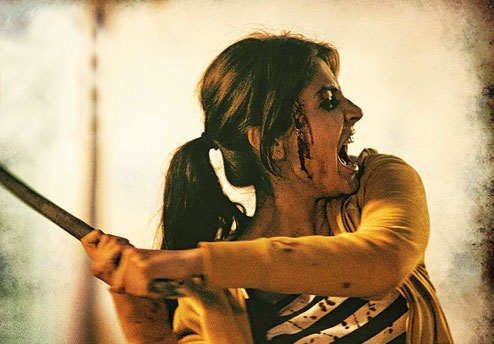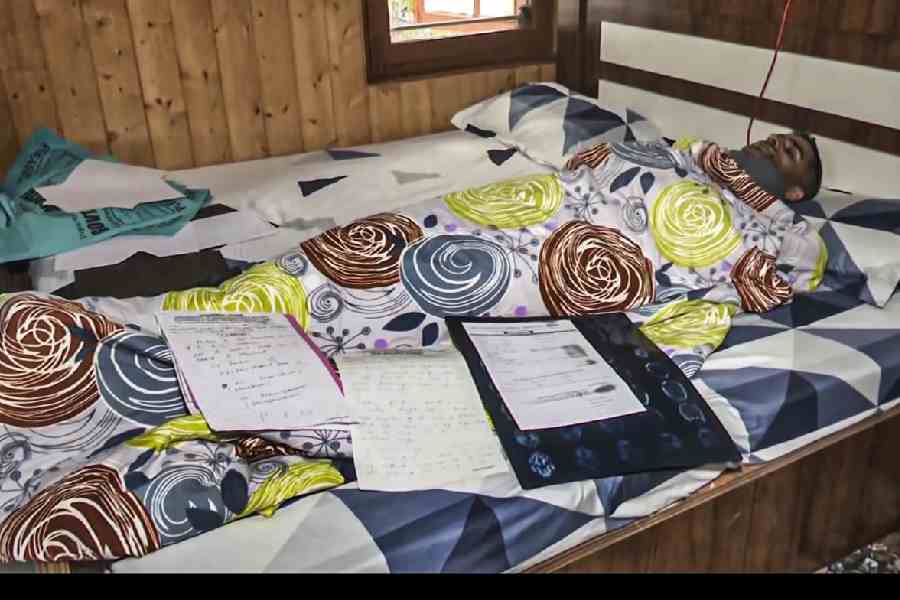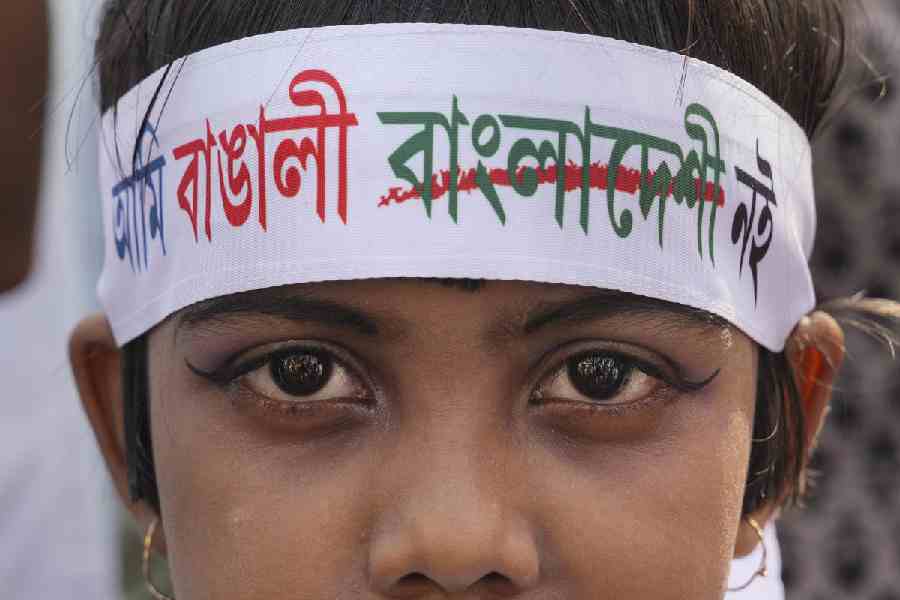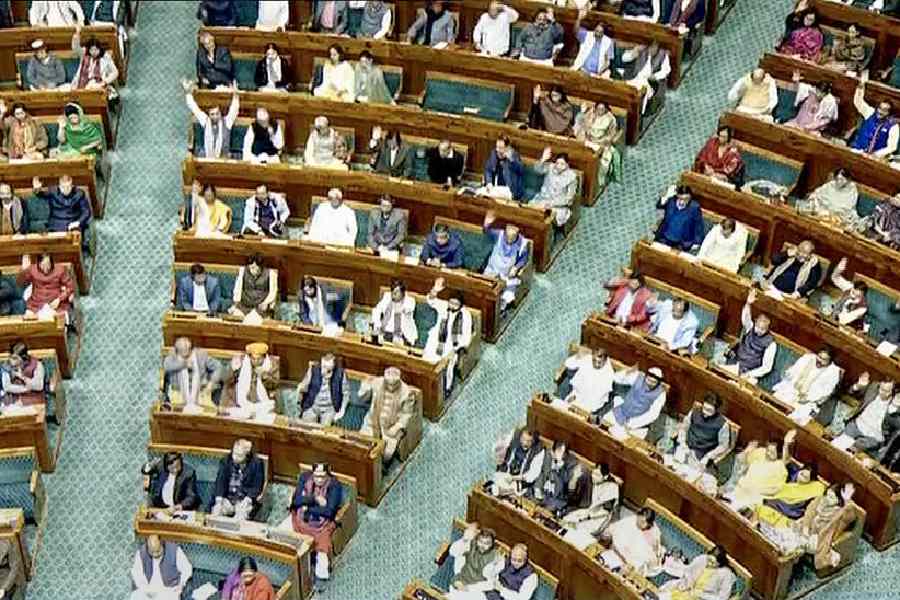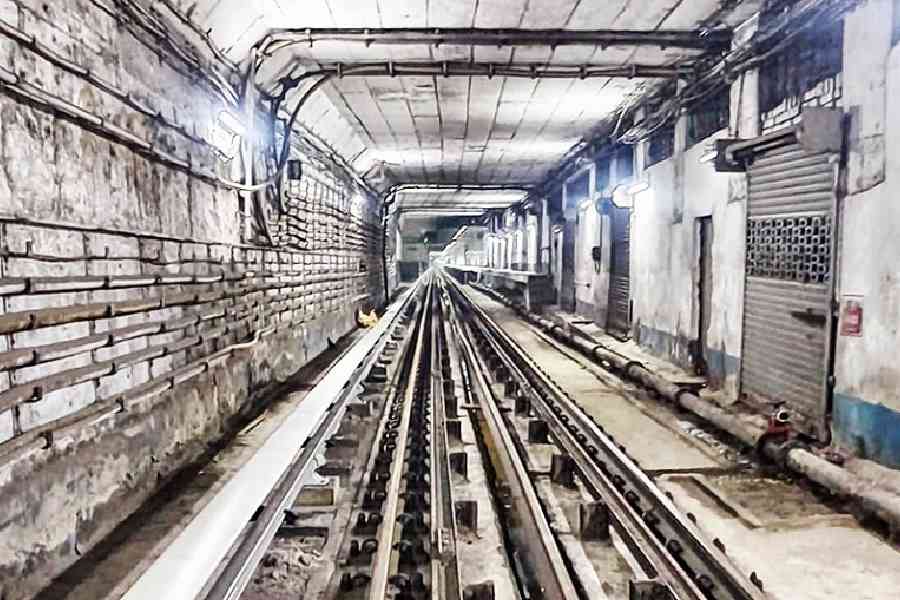
In those last few minutes of NH10, as Meera repeatedly bludgeons the man at her feet with an iron rod, the woman in you does a silent dance: patriarchy has been beaten to pulp. A woman wronged has literally taken matters into her hands and taught a lesson — not only to the men in the audience — but also to the women sitting in the dark. Women like you and me. A lesson that it’s time to get up, stand up and be counted.
The violence in NH10 unnerves, but it’s also violence that is necessary. When Meera, calculating and cold-blooded, reverses her SUV repeatedly to ram it into a man against a wall, it’s almost cathartic for the woman in you. When she, bloodied and bruised, drags the iron rod along the dimly-lit streets of a Haryana hamlet — turning predator from prey in a matter of minutes — you silently will her on to hunt them down and stick it in their gut.
When, after killing five, she turns around and limps out of the village with the words, “Karna tha, so kar daala,” you realise how it’s time for the woman in you to stop fleeing and start fighting. And yet, when Meera takes on her perpetrators one by one, there isn’t a single clap or cheer in the audience… what’s palpable is raw, undisguised horror. For this isn’t a super cop bringing out the mardaani in her or a boxing champ Mary Kom-ing her way through gender politics.
NH10 is a story that could happen to any of us.
Even before it takes the Kill Bill route — right down to the canary yellow jacket — Meera’s story is the story of the everyday woman, battling stereotypes and prejudices at home and outside. When the cop tells Meera’s husband Arjun: “Inko akele raat ko kyon gaadi chalaane dete hain aap?” you realise that once again the woman has been blamed for a crime committed by a man. When Meera, jubilant after a successful presentation at work, has a male colleague smirk, “Women employees tend to have it easy with the bosses,” the woman in you shakes her head in disgust.
When Arjun, not one to take directions from passersby, berates Meera with, “Tum ladkiyon ko map padhna nahin aata,” you see yet another stereotype being shoved in the face of women. It doesn’t matter which side of the divide you are on — swanky mall or scary badland — women are treated the same everywhere: some have it “lighter”, battling prejudice, patriarchy and politics everyday; the less lucky ones turn out to be victims of foeticide or honour killing.
Which is why Meera’s angst turns out to be so believable. For this isn’t rage brought on by one night on the road gone wrong… this is a build-up of years and years of being told ‘You can’t do this... you can’t go there’… of being blamed for the wrongs committed on you and of not being given credit for the rights you have done. When Meera becomes a ‘shero’, it isn’t because she wants to be one: a desperate need to survive makes her one.
And yet, what worked the most for me in NH10 was its honesty.
That women are also to blame for what happens to women. Like when Meera conveniently sidesteps a young girl pleading for help thinking it’s “none of my business”, but finds herself in the same helpless situation a few hours later... or how a mother goads on her son to brutalise her own daughter just because she has dared to marry outside her caste. Women, stand up yourself… and for the other women around you.
Which also applies to the young woman in the audience at the Monday morning show at INOX (South City) whose cellphone blared Chittiyan kalaiyaan re even when Meera was bringing the rod down on her predators.
Ma’am, Meera could have been you.
Priyanka Roy
EVERY INDIAN GIRL’S STORY
Brutal, violent and honest — that’s what NH10 is. Right from the start, the film strikes a chord with many incidents and situations we have been subjected to in our daily lives. Be it being ogled at with X-Ray vision while driving to hearing stuff like “women have it easy”... from having a not-so-cool-headed ex who would foolishly risk our safety and choose to take revenge... to travelling at night alone via a deserted stretch in front of Fort William and getting on to the Vidyasagar Setu... to a vacation not starting off well, I have been through similar situations.
What I loved most was Meera’s independent streak, a character so real in today’s times. She is a fighter who hesitantly signs up for a gun for her own safety, but is also level-headed enough not to take on goons. NH10 , sadly, is every Indian girl’s story at the moment, where every Meera needs to stand up and fight if others don’t do it for us. Because in the end ‘Karna tha, so kar daala’ is what’s needed for us to be safe.
Pramita Ghosh
YES, I AM MEERA
NH10 is so REAL that while watching it, I had to remind myself every now and then that: ‘It’s okay. I am only watching a film’. For I was so scared and so emotionally affected by Meera’s plight and helplessness. The relatability factor was too much to dismiss this as just a film. From the goons attacking her while she’s driving alone to how she stares transfixed at the expletive written on the door of a public washroom... I related to every heartbeat of Meera. I too feel like erasing cusswords written in public places. I don’t take elevators if there aren’t enough people. I avoid walking on empty streets, any hour of the day. Travelling alone at night is unthinkable.There isn’t a single day when I don’t ignore a bad comment or escape a bad touch or avoid a bad glance. Yes, I am Meera and NH10 left me very disturbed.
Ratnalekha Mazumdar
A WOMAN WON’T NEED A MAN TO FIGHT HER WAY OUT
If Queen was a feel-good film about a woman finding herself and realising that you don’t need a man to be happy and to live your dreams, NH10 preys on every nightmare of every Indian woman and tells you that if pushed into a corner, they won’t need a man to fight their way out. Meera is every urban girl — independent, capable, successful... who has to deal with gender stereotyping and misogynistic behaviour, not just at the workplace but also on the road and at police stations.
I know somebody who faced something similar to what Meera did as she drove back alone from a party in Gurgaon. The police advising Meera’s husband to not let his wife travel alone is also the typical reaction you expect from police officers. When her husband’s ego lands them in trouble, you feel like slapping him and muttering ‘bloody male ego’. All this was so subtly addressed that you don’t feel like the film is trying to get a point across.
NH10 keeps you on the edge of your seat to the extent you wish she would either die or find help. And when she goes after the men without mercy, you feel like saying ‘attagirl’, but then I felt disconnected and it all seemed too unreal. All the violence and her experience left me thinking what happens after? Isn’t surviving a bigger struggle? How does the experience change you? It was pointed out to me that maybe that was for another film. But I wished I had a bit of closure when I walked out of the hall.
Chandreyee Chatterjee
IT IS ALWAYS THE WOMAN’S FAULT
The film that lets the silence of the National Highway 10 do the talking is about that fire which resides within every woman. A fire that sometimes finds a way out explosively, like it did for Meera and that sometimes takes its time to kill, like the one within the downtrodden wife of Satbir, the man who kills his sister in the name of honour killing.
NH10 is a must-watch for that section of society, both male and female, that thrives on the physical and mental subjugation of the weaker.
There was one particular scene that comes in late in NH10, but has stayed with me. When Deepti Naval slaps her daughter-in-law in a fit of rage, her grandson laughs in delight. For him, it isn’t something wrong that is happening to his mother... he has been conditioned, at that tender young age, to believe that a woman deserves to be “punished” for everything she does. And that it is always the woman’s fault, for she is the r**di.
Riddhima Khanna
How did NH10 speak to the woman in you? Tell t2@abp.in

